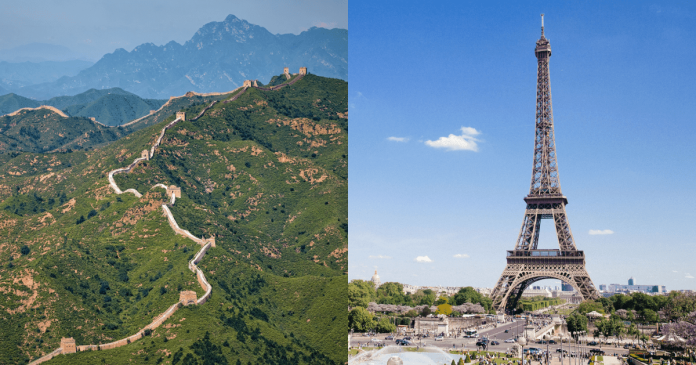France, a country known for its rich culture, history, and diverse landscapes, stands out in an unexpected way by having the highest number of time zones in the world. With a total of 12 different time zones, France’s unique time zone distribution sets it apart from other nations and presents a fascinating aspect of its geography.
The various time zones in France are a result of the country’s overseas territories and dependencies spread across the globe. These territories are located in different regions, including the Atlantic Ocean, the Indian Ocean, the Pacific Ocean, and the Caribbean Sea. As a consequence, each of these territories operates on its own distinct local time, contributing to France’s impressive tally of time zones.
From the westernmost territory of French Polynesia in the Pacific Ocean to the easternmost territory of Réunion in the Indian Ocean, the time differences span a significant range. This diversity in time zones not only showcases the vastness of France’s territories but also reflects the country’s global presence.
The 12 time zones within France are as follows:
- Metropolitan France (including Corsica): Central European Time (CET, UTC+1)
- French Guiana: French Guiana Time (GFT, UTC-3)
- Guadeloupe: Atlantic Standard Time (AST, UTC-4)
- Martinique: Atlantic Standard Time (AST, UTC-4)
- Saint Martin and Saint Barthélemy: Atlantic Standard Time (AST, UTC-4)
- Saint Pierre and Miquelon: Newfoundland Standard Time (NST, UTC-3:30)
- Mayotte: East Africa Time (EAT, UTC+3)
- Réunion: Réunion Time (RET, UTC+4)
- French Southern and Antarctic Lands: Various time zones based on research stations
- New Caledonia: New Caledonia Time (NCT, UTC+11)
- French Polynesia: Tahiti Time (TAHT, UTC-10)
- Wallis and Futuna: Wallis and Futuna Time (WFT, UTC+12)
This wide array of time zones within the country often leads to logistical challenges, particularly when it comes to coordination and communication between different territories. However, it also offers unique opportunities for trade, cultural exchange, and international cooperation.
Travelers and individuals engaged in global interactions must be mindful of the time differences when planning trips or scheduling meetings with counterparts in France’s diverse territories. Utilizing time zone converters and keeping track of local time variations are crucial for effective coordination across these regions.
France’s 12 time zones add another layer of intrigue to the country’s already vibrant tapestry. From the bustling streets of Paris to the tranquil shores of Réunion, each region operates on its own distinct time, reflecting the diverse nature of France’s overseas territories.
While France proudly claims the title of having the highest number of time zones in the world, it serves as a reminder of the vastness and global reach of the country. This unique aspect further contributes to the allure and fascination that France holds for both its residents and the international community.
As France continues to thrive with its diverse time zones, the rest of the world looks on in admiration, appreciating the remarkable geographical and cultural richness that this unique characteristic brings to the country.


